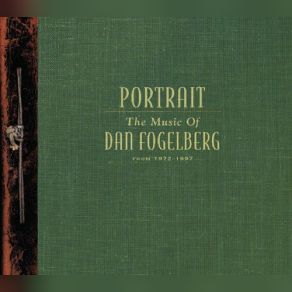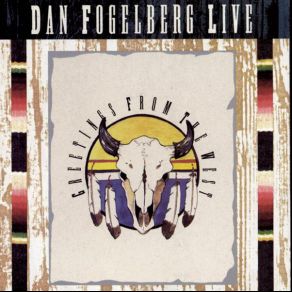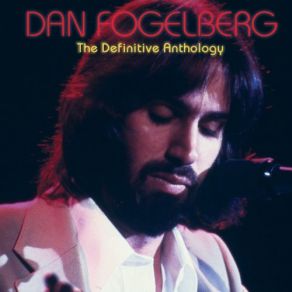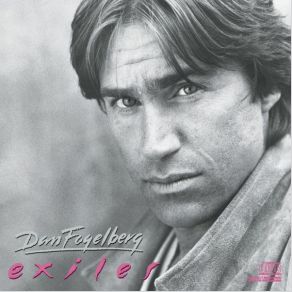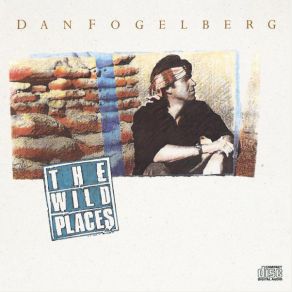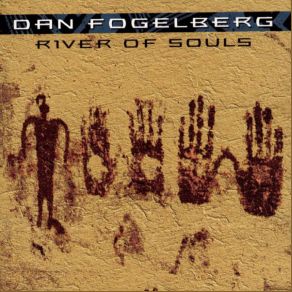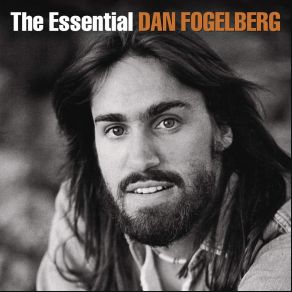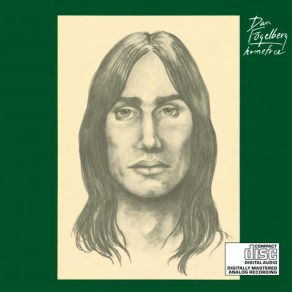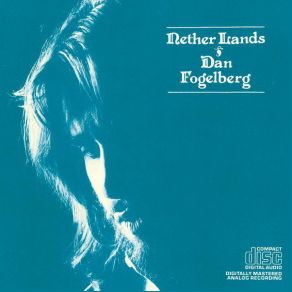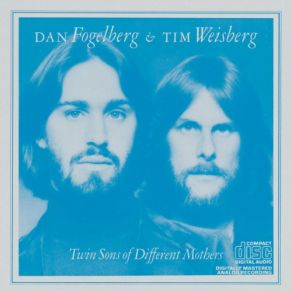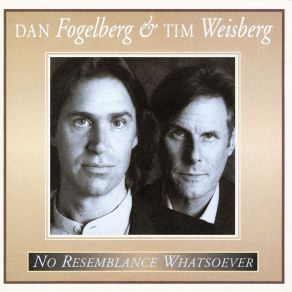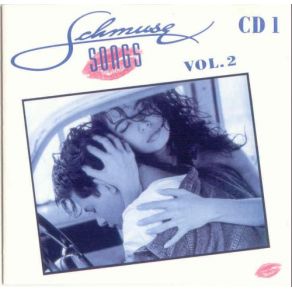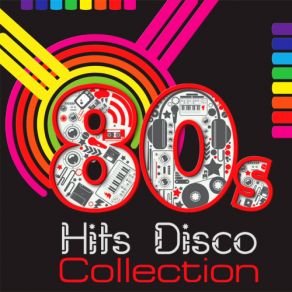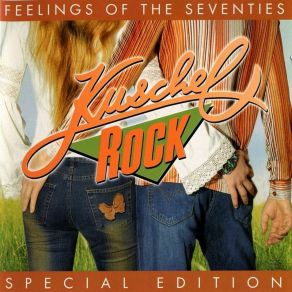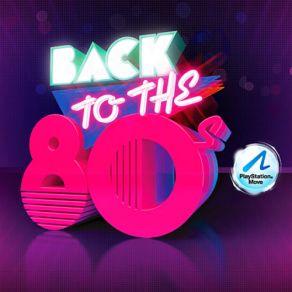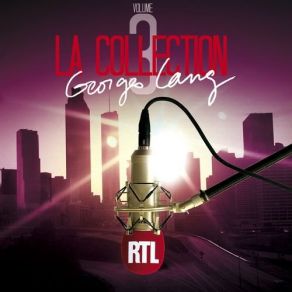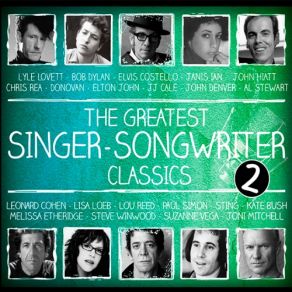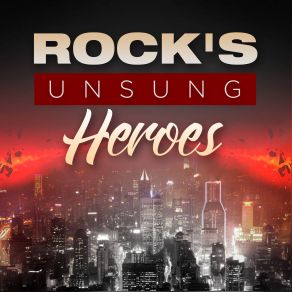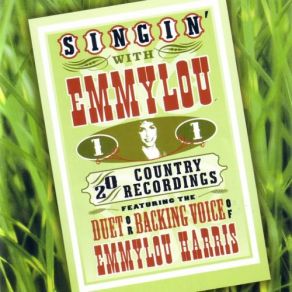Dan Fogelberg
Wikimp3 information about the music of Dan Fogelberg. On our website we have 46 albums and 70 collections of artist Dan Fogelberg. You can find useful information and download songs of this artist. We also know that Dan Fogelberg represents Rock genres.
Biography
[Edit]If James Taylor epitomized the definition and the original, late-'60s incarnation of the term singer/songwriter, Dan Fogelberg exemplified the late-'70s equivalent of that term at its most highly developed and successful, with a string of platinum-selling albums and singles into the early '80s and a long career afterward, interrupted only by a health crisis that led to his untimely death in 2007. He came out of a musical family, born Daniel Grayling Fogelberg on August 13, 1951, in Peoria, IL, where his father was an established musician, teacher, and bandleader. His first instrument was the piano, which he took to well enough, and music mattered to him more than the sports that were the preoccupation of most of the boys around him. At age ten, he was saving and listening to any old records he could find. And if there's a "God-shaped space" in everyone, Fogelberg's was filled with music, something his family might've guessed if they'd seen how much he loved the music in church but was bored by the sermons. His other great passions were drawing and painting. His personal musical turning point came in the early '60s, before he'd reached his teens. A gift of an old Hawaiian guitar from his grandfather introduced him to the instrument that would soon supplant the piano, and at age 12, he heard the Beatles for the first time, which not only led him to a revelation about how electric guitars could sound, but also made him notice for the first time the act of songwriting as something central to what musicians did. It was also at that point that he began picking up on the music of Carl Perkins, Chuck Berry, Little Richard, and Buddy Holly, all of whom were, of course, in the Beatles' repertory.
He started writing songs soon after, and by the time he was 13, he was in a band called the Clan, playing school events with a repertory that mostly consisted of Beatles songs. Of all the members, he was the one who stayed with music, and his taste and interests evolved with the music around him. By the time he was in his mid-teens, he was listening to the Byrds and Buffalo Springfield, and was finding inspiration in the sounds and songs of Gene Clark, Stephen Stills, Chris Hillman, Neil Young, and Richie Furay, among others. His second band, the Coachmen, who'd started out doing Paul Revere & the Raiders-style dance-oriented R&B, evolved into a more progressive folk-rock outfit, even embracing some of Springfield's more ambitious repertory. Yet, somehow, for all of that devotion to music, he didn't plunge directly into the field. Had he been living in California, in Los Angeles or San Francisco, it might've been different, but in the absence of a highly receptive audience, or a surrounding coterie of serious musician friends, or much encouragement anywhere in Peoria to pursue music, he ended up embracing other goals. After finishing high school, it was on to the University of Illinois at Champaign as a drama major, in hopes of an acting career, and then a switch to painting.
This was all going on amid the political agonies of the Vietnam War, which was still going on full-tilt at the time, and Fogelberg wasn't isolated from the tensions over the war as they manifested themselves. He fell back into music through one of the relatively few public centers for what passed for a counterculture in central Illinois, a club called The Red Herring, owned by a friend named Peter Berkow. The latter invited Fogelberg to play, and soon he was building a local audience with his sound and his songs, and it was from that beginning that Fogelberg came to the attention of a University of Illinois alumnus named Irving Azoff, who at the time was managing REO Speedwagon and was thinking that it was time for him to move up to the next level in the music business. One performance by Fogelberg, accompanied by his solo acoustic guitar at an otherwise drunken fraternity event in front of a singularly oblivious audience, sold Azoff on his prospects and the idea that his own future might well be quite favorable if tied to Fogelberg. He moved to Los Angeles and Azoff began the task of getting him signed. In the interim, he played some sessions and even rated a support gig on tour with Van Morrison, in a series of shows that also included Dan Hicks & His Hot Licks. His demo tape was good enough to get serious attention from Jerry Moss at A&M Records and David Geffen at the newly established Asylum Records, but it was the legendary Clive Davis, then still at Columbia Records, who got Fogelberg under contract.
Fogelberg's debut album, Home Free (1972), recorded in Nashville, with Norbert Putnam producing, was an embarrassment of riches, musically speaking. It was a sublimely beautiful melding of country-rock with the personal level of a singer/songwriter, reminiscent at times of Gene Clark's solo work, and also encompassing sounds derived from the likes of Stephen Stills, David Crosby, Graham Nash, and Neil Young, yet never sounding too much like the joint work of those three (or four) and always sounding like Fogelberg. But it was a lot like several other brilliant debut albums to come out of the Columbia Records orbit during Davis' tenure, including Child Is Father to the Man by the original Blood, Sweat & Tears and Greetings from Asbury Park by Bruce Springsteen, in that it never generated a hit single to help drive sales. Everyone who heard the album loved it, but without a single to generate AM radio play, very few people heard it; in Davis' view, fine as it was, Home Free was a little too country-ish for mainstream radio, and fell between the cracks between pop/rock and country playlists. A few years later, after the success of acts such as the Eagles, such distinctions would matter less, but in 1972, the music marketplace was that segregated stylistically. Fogelberg kept working, mostly as a session musician, turning up on Buffy Saint-Marie's MCA debut LP, Buffy, and on Jackson Browne's Late for the Sky, among other early- to mid-'70s albums. He also managed to continue with Columbia with help from his manager. Azoff's own Full Moon label had a production and distribution deal with Columbia, through its Epic Records imprint, and it was by way of Epic/Full Moon that he got a second chance. This time out, however, Fogelberg would record in Los Angeles with guitarist/producer Joe Walsh. Fogelberg quickly discovered that he had a sympathetic and enthusiastic partner in Walsh, and everything literally fell into place, even Graham Nash's presence (at Walsh's request) singing harmonies on the resulting album, Souvenirs, which featured a range of renowned Los Angeles-based musicians. The results were more than golden — they ended up double platinum, as "Part of the Plan" reached the Top 20 in 1974 and Souvenirs rode those charts for six months and sold steadily for years after. The album had mostly the same mix of elements as its predecessor, but this time it was widely heard and accepted. The country-flavored rock of "Part of the Plan," the reflective singer/songwriter work of "Song from Half Mountain," the bluegrass-flavored "Morning Sky," and the heavier "As the Raven Flies" (which recalled Neil Young's "Ohio") — all seemed to fit together perfectly.
Now Fogelberg was a star, leading an Illinois-spawned band called Fool's Gold and touring almost constantly for the next two years. In the midst of it all, he completed a third album, Captured Angel (1975) — which he produced himself this time — which showed him extending his sound in more ambitious directions, and in surprising circumstances. It was during 1975 that he'd returned home to spend time with his father, who had been hospitalized, and afterward, while staying in Peoria, cut what were supposed to be demos of the songs he wanted to use on his new album, with Fogelberg playing every instrument and doing all the vocals. Instead, when Azoff and Davis heard the demos, they insisted that this was the album, and that he could never recapture the feel he'd gotten on songs like "Comes and Goes" working with other musicians. He eventually came to an agreement with the label that the percussion parts would be redone by Russ Kunkel, and the final version of Captured Angel included Norbert Putnam on bass on certain tracks, and Al Perkins on pedal steel guitar and David Lindley on fiddle, plus some string arrangements by Glen Spreen, but otherwise it was truly a Fogelberg solo effort. That album only solidified his fame, as well as making him a special favorite of college students (especially coeds) across the country, and a tour with the Eagles in 1975 — who, by then, were being managed by Azoff — only enhanced his profile.
Fogelberg moved to Colorado in the mid-'70s, and his initial time there resulted in the songs that became the basis for his next album, Nether Lands (1977). Ironically, the songs came at the end of an extended dry spell as a songwriter, the first of his adult life. He found himself unable to compose for months, and then, suddenly, he started writing again, but in a much more ornate, elaborately conceived, classically influenced idiom. The songs were bolder both lyrically and musically — the title track, in particular, was notable for employing the services of composer/arranger Dominic Frontiere in orchestrating it. The album was a hit, and he was still riding that initial wave of recognition and the concertizing that went with it, even if he was now taking the audience in some unexpected directions. Fogelberg decided at this point to step back a bit — get off that wave — and do something purely for his own satisfaction musically. In 1978, he began work on a record that was to be more of a personal indulgence than anything else, the non-commercial side of Dan Fogelberg, sort of his equivalent to those instrumental albums that Frank Sinatra had issued as a conductor a couple of times in his career, or Neil Young's later Everybody's Rockin'. He teamed up on what became a duo album with jazz flutist Tim Weisberg for the album Twin Sons of Different Mothers (1978) — but instead of being a curio or a footnote in his output, it ended up charting high and generating a huge hit single in the guise of "The Power of Gold" (which, ironically, had been added to the LP at the last minute). The album ended up in the Top 20 and was embraced by critics and the public alike. For the next few years, Fogelberg was literally riding a creative and commercial whirlwind, peaking with his 1980 album Phoenix, which was propelled to platinum status with help from the number two single "Longer." The year before, he also fulfilled a longtime career goal by playing Carnegie Hall in New York, to a sellout audience that included his parents.
Fogelberg's career in the 1980s began with an unexpected turn — concept albums were common enough by then, but most record labels also tended to strongly discourage the recording of double LPs, owing to the expense and the difficulties in selling and marketing them. But midway through finishing his next album, and with the single "Same Old Lang Syne" already in release and record stores and buyers poised for a new LP, he suddenly decided to expand the planned record, writing new songs and effectively doubling its length, as well as delaying it well into 1981, the better part of a year beyond what the label or his manager had planned on. The result was his boldest production to date, The Innocent Age (1981), a massive project featuring some VIP collaborators (including Joni Mitchell and Emmylou Harris), from which four hit singles, the earlier "Same Old Lang Syne" plus "Run for the Roses," "Hard to Say," and "Leader of the Band" (the latter a tribute to his father), were ultimately extracted. That album marked his commercial peak, and seemed to end a phenomenally popular and productive phase of his career. As though to mark the transition, the following year Epic released its first hits compilation on Fogelberg, a ten-song LP on which four of the slots were filled by the singles off of The Innocent Age.
It was three years before his next new album, during which time Fogelberg's musical sensibilities evolved in new and more specialized directions. He turned toward more personal and experimental forms of music, none of which proved remotely as popular with the public or with critics as his 1970s work. Additionally, as was the case with many artists of the 1970s and earlier, the playing field was fundamentally altered in the 1980s. MTV and music videos as promotional devices became central to getting exposure and airplay, and recording artists now needed a distinct visual style as well as a sound to make it to the front rank; additionally, a new generation of music critics, most of whom were bent on showing contempt for most of the favored artists of the previous decade or two, were now speaking in the press. His 1984 album Windows and Walls did reach the fans, and even generated a hit in "Language of Love," but got a hostile reception from the critics of the period. And his turn toward bluegrass music, helped in part by his contact with Chris Hillman, who'd also turned back toward his bluegrass roots at the time (and recorded Fogelberg's "Morning Sky" as the title track of his latest album), didn't make him any more accessible to the mainline music critics of the day. The resulting album, High Country Snows (1985), was a good seller and showed off Fogelberg's roots brilliantly, but did nothing to enhance his pop credibility, which had waned considerably over the previous three years.
Fogelberg withdrew somewhat in the years that followed, playing anonymously in bars around Colorado as part of an outfit called Frankie & the Aliens, formed by Joe Vitale. He seemed to be headed back to his teenage roots, and in the process redefined himself musically. When he re-emerged with The Wild Places and the worldbeat-flavored River of Souls in the early '90s, he was writing what amounted to topical songs about the environment, a subject with which he'd become much concerned since moving permanently to Colorado. By that time, he'd established a fully equipped home studio that provided him with the independence that he craved, and he was beholden to the record label merely as a conduit for his work. Epic, for its part, kept releasing Fogelberg's music, including a superb 1991 live album called Greetings from the West, and his earlier albums made perennially popular CD releases. Home Free was also extensively remixed by Norbert Putnam for its CD re-release in 1988 (those desiring to hear the original mix can find it on BGO's U.K. double-CD reissue of Home Free/Souvenirs). Indeed, all of Fogelberg's compact discs reflected an unusual degree of care in their production, especially for Columbia catalog reissues of the era, when the label was often just slapping down the digital masters and batting them out without an eye toward quality.
In 1995, he and Tim Weisberg did another collaboration together, No Resemblance Whatsoever, which seemed to pick up right where their 1978 album had left off without skipping a beat. In 1997, Columbia honored Fogelberg with a four-CD career retrospective compilation entitled Portrait: The Music of Dan Fogelberg from 1972-1997, looking back over his previous 25 years of work. Fogelberg closed out the old century with First Christmas Morning, which saw him plunge several centuries into the past in pursuing traditional holiday music, evoking sounds that, in the context of work from a pop/rock artist, had previously only been heard from Jan Akkerman on his Tabernakel album and the work of the Amazing Blondel, nearly 30 years before. Finally, in 2003, Fogelberg went back to the acoustic singer/songwriter sound of his early career with the appropriately titled Full Circle album. This seemed like the possible opening of a promising new phase to his work and career. Those prospects were dashed in mid-2004, however, when Fogelberg was diagnosed with advanced prostate cancer, to which he finally succumbed in late 2007.
Title: Portrait (CD4)
Artist: Dan Fogelberg
Genre: Rock, Pop Rock, Songwriter/Lyricist, Contemporary Folk
Title: Live: Something Old, New, Borrowed...and some Blues
Artist: Dan Fogelberg
Genre: Rock, Hard Rock, Metal, World Music, Pop, Contemporary Folk, Folk
Title: Portrait (CD2)
Artist: Dan Fogelberg
Genre: Rock, Pop Rock, Songwriter/Lyricist, Contemporary Folk
Title: The First Christmas Morning
Artist: Dan Fogelberg
Genre: Rock, Pop, Traditional Pop Music, Songwriter/Lyricist
Title: Dan Fogelberg Live - Greetings from the West
Artist: Dan Fogelberg
Genre: Rock, Pop, Songwriter/Lyricist
Title: Live - Something Old, New, Borrowed...and Some Blues
Artist: Dan Fogelberg
Genre: Rock, Pop, Songwriter/Lyricist
Title: Portrait (CD3)
Artist: Dan Fogelberg
Genre: Rock, Pop Rock, Songwriter/Lyricist, Contemporary Folk
Title: The Essential Dan Fogelberg
Artist: Dan Fogelberg
Genre: Rock, Folk Rock, Pop, Songwriter/Lyricist, Psychedelic
Title: The Definitive Anthology
Artist: Dan Fogelberg
Genre: Rock, Punk Rock, Pop, Songwriter/Lyricist
Title: Portrait (CD1)
Artist: Dan Fogelberg
Genre: Rock, Pop Rock, Songwriter/Lyricist, Contemporary Folk
Title: The Essential
Artist: Dan Fogelberg
Genre: Rock, Folk Rock, Pop, Songwriter/Lyricist, Psychedelic
Title: Portrait - The Music of Dan Fogelberg from 1972-1997
Artist: Dan Fogelberg
Genre: Rock, Pop, Songwriter/Lyricist
Collections
Title: 80's Pop Hits
Genre: Pop
Title: 21 Christmas Hits
Genre:
Title: Love Rocks - After Midnight, Vol. 5
Genre: Pop
Title: 80's Wonderland!
Genre: Pop
Title: A Tribute to Nicolette Larson: Lotta Love Concert
Genre: Rock
Title: Music for Lovers- I Just Call to Say I Love You
Genre: Gospel
Title: Folk, Gospel & Blues: Will the Circle Be Unbroken
Genre: Blues
Title: Easy 80'S - Angel Of The Morning CD 1
Genre: Pop Rock
Title: Easy 80'S - Lost In Love CD 1
Genre: Pop Rock
Title: Top Hits Of The 70s CD 2
Genre: Pop
Title: The Sound Of The Westcoast 1965 - 1979 CD 4
Genre: Pop Rock
Title: Now Is The Music - 100 Procent Love
Genre: Pop
Title: Compact Disc Club - Wonderful Life CD 1
Genre: Pop Rock
Title: Billboard Top 100 Of 1981
Genre: Ambient, Electronica, Hip Hop/R&B, Soul, Blues, Jazz, Rock, Blues Rock, Folk Rock, Grunge, Post Rock, Dancefloor, World Music, Latin, Country, Disco, Pop, Pop Rock, Teen Pop, Alternative, Songwriter/Lyricist, Funk, Indie, Classical
Title: Billboard Top 100 Of 1982
Genre: Pop
Title: Billboard TOP100 Romantic Hits Part 5
Genre: Pop
Title: Golden Love Songs Vol. 6 - Need Your Love So Bad
Genre: Pop
Title: The Essential Love (CD2)
Genre: Hip Hop/R&B, Soul, Gospel, Pop
Title: Canciones Inolvidables Cd 2
Genre: Rock, Dance Rock, Pop, Pop Rock
Title: Wonderful Life CD1
Title: First Dance CD3
Title: Top Of The Pops 1980 CD2
Genre: Jazz
Title: Top Of The Pops 1981 CD4
Genre: Rock
Title: Love Album Las Mas Bellas Canciones De Amor Cd 2
Genre: Pop
Title: Billboard Top 100 Of 1980
Genre: Pop
Title: Schmusesongs Vol. 2 (CD1)
Genre: Pop
Title: Love Songs Top 100 (CD4)
Title: Billboard TOP10 Romantic Hits 2 (CD2)
Genre: Pop
Title: Rock Kills You!
Genre: Rock, Alternative Rock, Pop Rock
Title: Knuffelrock Top 100 (CD5)
Title: '80s Pop Hits (CD3)
Genre: Electronica, Rock, Disco, Pop
Title: 80s Tune On
Title: Made In America II
Title: Pure... Country (CD2)
Genre: Country
Title: Pure... Singer Songwriters (CD2)
Genre: Pop
Title: Love Stories (CD4)
Genre: Pop
Title: Classic Soft Rock More Than A Feeling (CD1)
Genre: Rock
Title: 80s Pop Hits (Sony) (CD1)
Title: Pure... Acoustic (CD2)
Title: Singers And Songwriters 1978-1979
Genre: Soul, Rock, World Music, Funk
Title: Yacht Rock (CD3)
Genre: Rock
Title: Yacht Rock Rock Classics From 70s 80s (CD3)
Genre: Rock
Title: American Heartland Legends Of Country (CD2)
Genre: Country
Title: Time Life Music - Easy 80's (Angel Of The Morning) (CD1)
Genre: Pop
Title: Time Life Music - Easy 80's (Lost In Love) (CD1)
Genre: Pop
Title: Country The Ultimate Collection (CD4)
Genre: Blues, World Music, Country, Pop, Folk
Title: FM (Original Soundtrack)
Genre: Theatre/Soundtrack
Title: Essential The Power Of Rock 2015 (CD2)
Genre: Rock
Title: Love Stories
Title: The Greatest Singer-Songwriter Classics (CD2)
Genre: Pop
Title: Play Something Country (CD2)
Genre: Country, Country Rock, Rockabilly
Title: Coming Personal Holiday - Promotion (CD3)
Genre: Garage, House, Latin, Progressive
Title: Superstar Seventies (CD1)
Featuring albums
Title: Singin' With Emmylou 1
Artist: Emmylou Harris
Genre: World Music, Country, Country Rock, Alternative Country, Folk
